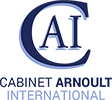Employees must remain loyal to their employers if we refer to Article L1222-1 of the French Labor Code, which specifies: “The employment contract must be executed in good faith.”
However, companies increasingly fall victim to misconduct and disloyal behavior from employees, leading to serious consequences for the business (harm to its reputation, assets, expertise, or organizational structure) and resulting in damage.
Examples of unfair practices by employees include :
- Working for a competitor while on leave or medical absence
- Slandering their employer or company.
- Misusing working hours for personal purposes.
- Protected employees using delegated hours for other professional or personal activities.
- Breach of non-compete agreements.
- Moral or sexual harassment.
- Embezzlement of goods.
- Misuse of company equipment for personal gain during working hours

